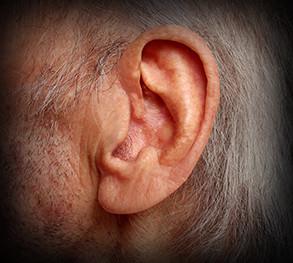
Driving with arthritis pain: Stay comfortable — and safe — behind the wheel

Daily cup of coffee may prevent afib recurrence

Gene-editing therapy lowers harmful blood fats in early study

What is EMDR therapy, and who can it help?

GLP-1 drugs versus bariatric surgery for treating obesity

Two dumbbells, three exercises, and 10 minutes

Easing the emotional burden of IBS

Modify your push-ups to meet your fitness level

What is long QT syndrome?

Stroke survivors may benefit from very low LDL levels
Tinnitus
- Reviewed by James Naples, MD, Contributor; Editorial Advisory Board Member, Harvard Health Publishing
Tinnitus is sound in your head or ears with no external source. It’s commonly referred to as ringing in the ear. That’s because, for many, it's a ringing sound; for others, though, it's whistling, buzzing, chirping, hissing, humming, roaring, or even shrieking. The sound may be perceived as coming from one ear or both, from inside the head, or from a distance. It may be constant or intermittent, steady or pulsating.
Nearly everyone experiences a few brief episodes of ringing in the ears at some point in life, for example after using a lawn mower or attending a loud concert. In some people with tinnitus, however, the problem is a persistent source of distress.
The condition is strongly associated with hearing loss but can also occur in people who have normal hearing. There are no treatments that specifically target the underlying causes of chronic tinnitus, but it often becomes less noticeable and more manageable over time. There are also several ways to help tune out the noise and minimize its impact.


Driving with arthritis pain: Stay comfortable — and safe — behind the wheel

Daily cup of coffee may prevent afib recurrence

Gene-editing therapy lowers harmful blood fats in early study

What is EMDR therapy, and who can it help?

GLP-1 drugs versus bariatric surgery for treating obesity

Two dumbbells, three exercises, and 10 minutes

Easing the emotional burden of IBS

Modify your push-ups to meet your fitness level

What is long QT syndrome?

Stroke survivors may benefit from very low LDL levels
Free Healthbeat Signup
Get the latest in health news delivered to your inbox!
Sign Up

